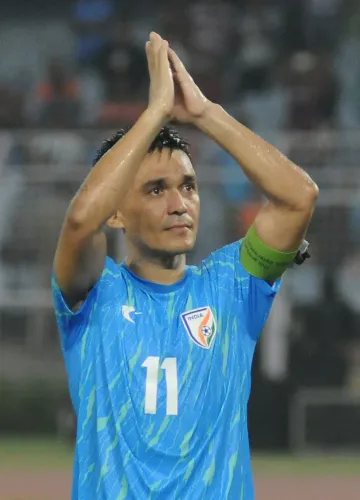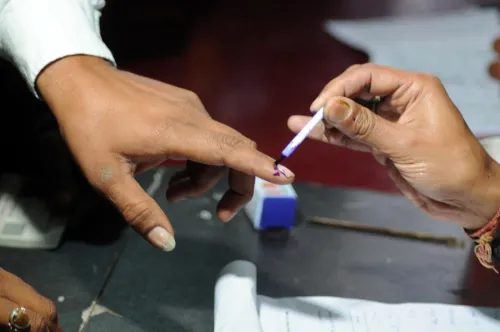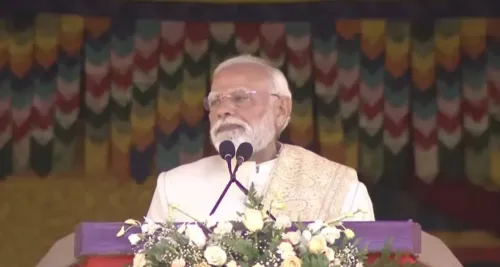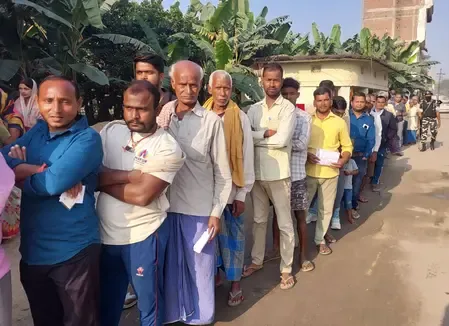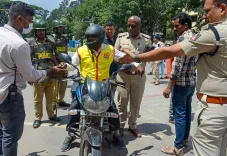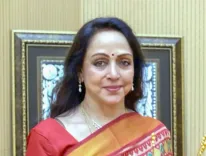Why Did the Delhi HC Reject Medha Patkar's Plea to Call a New Witness in Her Defamation Case Against L-G Saxena?
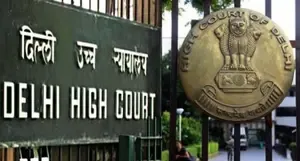
Synopsis
Key Takeaways
- Delhi High Court dismissed Medha Patkar’s plea for a new witness.
- The case against V.K. Saxena dates back to 2000.
- The court emphasized the need for timely justice.
- Patkar's request was seen as a delay tactic.
- Importance of procedural integrity in legal proceedings.
New Delhi, July 30 (NationPress) The Delhi High Court has rejected a petition from social activist Medha Patkar contesting a trial court’s decision to deny her the opportunity to call an additional witness in a long-standing defamation case against V.K. Saxena, the current Lieutenant Governor of Delhi.
A single-judge Bench led by Justice Shalinder Kaur upheld the March 18 ruling of the Judicial Magistrate First Class (JMFC), which determined Patkar’s request was “a deliberate attempt to delay the trial rather than a genuine necessity.”
The case traces its origins back to December 2000, when Patkar filed a complaint asserting that a newspaper advertisement published on November 10, 2000, was defamatory. The complaint included three individuals as defendants, including the publisher and editor of the newspaper, as well as V.K. Saxena.
While the proceedings against two of the defendants were dismissed following a compromise and apology in 2008, the trial against Saxena continued.
After Saxena entered a not guilty plea, Patkar’s team began presenting evidence. From 2018 to 2024, four prosecution witnesses were examined, including Patkar herself. However, the trial has experienced significant delays due to various factors, including settlement efforts, the Covid-19 pandemic, and repeated adjournments.
In February, Patkar submitted an application under Section 254(1) of the Criminal Procedure Code (CrPC), requesting permission from the trial court to examine a new witness not included in the initial list.
Judicial Magistrate First Class Raghav Sharma of Saket Courts denied Medha Patkar’s request to summon this additional witness, citing the extended duration of the case and the timing of her request.
The trial court stated, “The present case has been pending for 24 years, and the complainant has already examined all witnesses listed at the time of filing the complaint.”
In the order issued on March 18, the magistrate noted that Patkar had previously filed an application under Section 254(2) of the CrPC to summon additional witnesses but did not mention the current witness at that time.
“If this witness was truly material to her case, she would have either included them in the original list or at least named them in the earlier application,” the order stated.
It further added that the appearance of the new witness only after all other prosecution witnesses had been examined “raises serious doubts about the genuineness of this request.”
In her petition to the Delhi High Court under Article 227 of the Constitution, Patkar argued that the trial court had mistakenly treated her Section 254(1) application as if it were under Section 254(2) of the CrPC.
Patkar’s attorney contended that denying the opportunity to present a witness who was willing to testify voluntarily constituted a miscarriage of justice.
Patkar had not intentionally delayed the trial, and earlier delays were largely due to external circumstances, her counsel argued.
It was also highlighted that the CrPC does not prevent a complainant from presenting a voluntary witness at a later stage simply because the witness was not included in the original list, especially when no summons from the court was requested.
In contrast, advocate Gajinder Kumar, representing Saxena, opposed Patkar's plea on the basis of delay and procedural abuse. Kumar asserted that the additional witness had not been mentioned in the original list submitted 25 years ago, nor during any prior examination or cross-examination, claiming the request was an afterthought aimed at addressing gaps in the complainant’s case.
Introducing new witnesses at such a late stage, Saxena’s counsel argued, would only prolong the already delayed trial.
In a comprehensive 19-page judgment, the single-judge Bench of Justice Shalinder Kaur recognized the importance of a fair trial but stressed that proceedings cannot extend indefinitely, especially given the “overwhelming backlog of cases within the criminal justice system.”
“A review of the petitioner’s application under Section 254(1) of the CrPC seeking to summon a new witness reveals that no adequate cause has been presented for the failure to produce the proposed witness, Ms. Nandita Narayan,” it stated, adding that the application did not sufficiently explain the delay in presenting the witness or her relevance at this late stage.
The Justice Kaur-led Bench noted that while Section 254(1) grants the complainant the right to present evidence, it does not imply unlimited freedom to introduce new witnesses without valid justification.
Accepting Patkar’s argument, it stated, would render Section 254(2) obsolete and potentially lead to endless trial delays, concluding that the trial court had “correctly interpreted” the provisions of Sections 254(1) and 254(2) of the CrPC.
In dismissing Patkar’s petition, the Delhi HC observed, “The Impugned Order has thoroughly analyzed the petitioner’s arguments, harmonized statutory interpretation, and considered the lengthy pendency and past conduct to arrive at a legally sound conclusion.”

